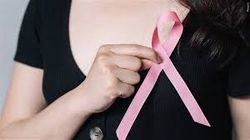- About Us
- Advertise / Support
- Editorial Board
- Contact Us
- CancerNetwork.com
- TargetedOnc.com
- OncLive.com
- OncNursingNews.com
- Terms & Conditions
- Privacy
- Do Not Sell My Information
- Washington My Health My Data
© 2025 MJH Life Sciences™ and CURE - Oncology & Cancer News for Patients & Caregivers. All rights reserved.
Finally Learning to Put Myself First
Dr. Angela Patterson is a two-time breast cancer survivor. She was first diagnosed with stage IIB triple negative breast cancer in 2006 when she was 36 weeks pregnant.
A breast cancer survivor and mother discusses the importance of prioritizing her own needs.
This is hard for me
The first time I had cancer, I was a new mother. I wanted to put the baby first, and oftentimes I had to even when I felt physically terrible, but the rigors of treatment and recovery forced me to concentrate on myself part of the time. It was difficult to split my focus for care.
A woman I knew was diagnosed years after me, and her cheerful posts about working from the infusion room haunted me. I wasn’t given that choice. I started chemo right after the baby was born, so I was on maternity leave that expanded to encompass treatment leave. I thought she was a goddess, and I wanted to be like her.
The second time I had cancer, I “only” needed surgery and radiation, not chemo. I thought it would be so easy, not needing chemo. I continued to work full time, yet I found that fatigue and side effects made it a considerable struggle. My body didn’t heal as quickly, the side effects were stronger, and I felt like I let people down when I accidentally slept through a meeting I had scheduled because I laid down “just for a minute” after lunch one time.
Never mind that I was finishing up grad school while also working and going through treatment. I beat myself up for not being able to do it all with grace and a cheerful attitude. I felt less than.
Now it’s five years later and I have excellent reasons for believing I will be diagnosed for a third time in the next two to three weeks. I am facing major surgery this time, and it will take weeks to recover. I have reached out to friends to share my fears and to talk through various plans for the logistics of getting through this.
Top of mind is my work. I’m on a project that is critical to the organization, and if I am not participating full time then it could set the project back. I don’t want to see project delays hurt the organization.
Friends and co-workers, independently from one another, have given me the same feedback. What they have all told me is that my health comes first, the work can wait, and in this time of layoffs and zero loyalty, a company wouldn’t hesitate to cut me if it suited them. Why should I sacrifice my health to them?
Maybe I don’t need to pretend to be the cheerful goddess, doing work things from my hospital bed. Maybe I don’t need to push myself to return to work within some unrealistic time frame. Maybe it would really, truly be OK to just focus on getting through each moment and healing properly.
Would it?
I find it amazing that I need to give myself permission to take care of myself. Our American culture pushes us to work all the time. We give up our nights and weekends in the hope that our efforts will be recognized and rewarded. Women, in particular, are bombarded with messages to put the needs of others before our own. We do it without thinking as we raise children and take care of our partners.
I am figuring out how to take care of myself.
When my friends try to cheer me up and say maybe the inconclusive scans and coming biopsy point to something benign and not cancer, it isolates me. They try to distract me rather than endure the painful “what ifs” I toss to them, but that makes me feel alone, like I am the only one facing the truth. I realized that part of self-care is helping them understand that.
Taking care of myself includes showing my friends what I need from them right now. I do not need cheering up. I need someone to help me face the possibilities.
Once I tell them about the similarities between events leading to the second diagnosis and events happening this time, they get it. They switch from “don’t think about the possible bad stuff” to “tell me how I can support you.” Once they switch, the depth of how much they care reaches me.
I think some people cope best by ignoring cancer until they can’t. I cope best by researching possibilities until I have a Plan A, B, and C. Researching when I’m worried by calm, rather than when I’m somewhat panicked, helps me remain calmer because it means I will already have a carefully constructed plan I can activate once the eventual answer comes.
You know what’s different now? Plans A, B and C include me taking time off to rest and easing back into work with part time hours until I feel ready to return full time. I found in my research that other women have done this, and the world didn’t blow up, and their employers showed compassion.
I’m amazed that I don’t have to put everyone else first. Putting my needs first is a real option.
On the other hand, of course it is. It always was. I just needed many voices to tell me before I heard it.
For more news on cancer updates, research and education, don’t forget to subscribe to CURE®’s newsletters here.
Related Content:



